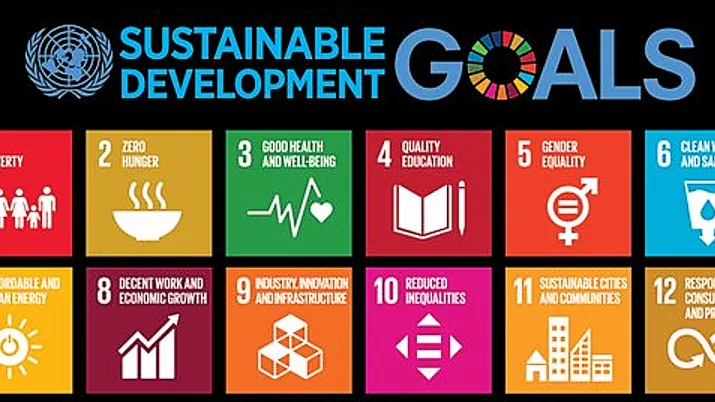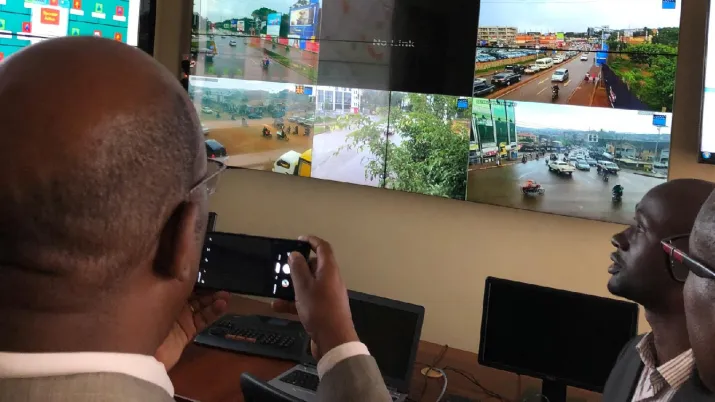Share the page
Algeria

Algeria, which is located in the centre of the Maghreb, has some real assets: an advantageous strategic position, abundant hydrocarbon resources and a young population. However, the country is currently facing several challenges: reducing its dependence on oil and gas, stimulating the creation of added value and addressing environmental threats. As a long-standing partner, AFD supports development in Algeria for sustainable growth.
Context
Covering an area of over two million km2, Algeria is the largest country in Africa and in the Arab world. As a gateway to the African continent, Algeria has an ideal strategic position, opening onto the Mediterranean basin and, therefore, Europe. By extension, and thanks to the richness of its energy sources, it holds a certain influence over the different regional groups to which it belongs.
Algeria has been able to diversify its economy by reforming its agrarian system and modernising its heavy industry. That said, hydrocarbons still represent almost all of the country's exports, seeing as the country is a key producer of natural gas and oil. This economic orientation is a major challenge: Algeria needs to reduce its dependence on hydrocarbons by relaunching its economic growth and promoting the development of sustainable cities.
AFD has worked in partnership with Algeria since 1968, supporting the country in its economic, energy and urban development projects. Since 2000, AFD has committed a total of €217.2m to Algeria.
AFD's Algeria office is directly attached to the North Africa regional office in Casablanca.
Our approach
"AFD and Algeria: a 50-year-long partnership built on trust"
lgeria ranks first in the Maghreb, and North Africa as a whole, on the Human Development Index (HDI). The quality of life in Algeria has been constantly improving over the past twenty years. Naturally, this has resulted in an increase in energy consumption. If this continues, the country will be unable to produce enough energy to satisfy domestic needs and demand from abroad.
In order to prevent this, Algeria intends to focus on renewable energy. With 2,000 to 3,900 hours of sunlight per year and daily radiation of 3,000 to 6,000 Wh/M2 (i.e. the equivalent of ten times the worldwide consumption), its solar potential is huge. Solar therefore seems to be the most readily available, effective and competitive energy to develop.
AFD is supporting Algeria in its energy transition by funding:
- The implementation of a cooperative academic programme aiming to model energy transition scenarios for the Ministry of Energy.
- The development of access to energy and decentralised electricity production from renewable energy sources in the southern region.
The country's increasing urbanisation is having serious consequences for the urban population's well-being: overcrowding in large cities, slow services, traffic congestion, deteriorating infrastructure, etc. For more sustainable urban development, AFD is providing Algeria with support workshops. The main objective is to strengthen cooperation between the authorities, Algerian operators and their French counterparts when it comes to renewing urban infrastructures and developing railways in cities. Our activities:
- Developing urban mobility: this is a major challenge today for the Algerian authorities who are determined to implement sustainable urban policy. AFD supports this effort by organising a workshop dedicated to developing urban railway infrastructures and creating mobility solutions.
- Renovating existing urban infrastructures: AFD, in cooperation with the Ministry of Housing, Urban Development and the City and the Wilayah of Alger, will organise a workshop dedicated to the restoration of old buildings in accordance with government policy.
- Envisaging the city of tomorrow: in the spirit of sharing French expertise, AFD supports Algeria in the implementation of the "Smart City" project. This national programme aims to address challenges in terms of performance and effectiveness of urban services, especially with regards to transport, governance, energy and the environment.
Most of Algeria's revenue comes from exporting hydrocarbons. Economic diversification is thus a key factor in the country's sustainable development. To this end, the Algerian government has set two key objectives:
- Modernising agriculture, which only accounts for a small part of the country's GDP (around 13%). Its reinforcement and revitalisation are crucial in order to diversify the economy, employment and food security. During the fourth French-Algerian Joint Economic Committee (COMEFA), the French and Algerian governments called for the creation of a joint agricultural commission in 2018. One of the levers for development may lie in strengthening the private sector, setting up agricultural training programmes and supporting the creation of SMEs through funding by the appropriate banking sector.
- Boosting the private sector: Algeria needs to speed up its transition to a market economy. This will require more openness to Europe and businesses to be modernised. Thanks to investment credit lines, in partnership with Crédit populaire d'Algérie (CPA), AFD supports Algerian SMEs in improving their competitiveness and effectiveness, contributing to the funding of the private sector by the public banking sector and supporting employment.
Today, only 38% of the Algerian population has access to the internet. To improve this situation and modernise its governance, Algeria has started promoting new technologies. By supporting this sector, the government intends to achieve its goals of expanding digital technology, both in terms of accessibility and usage, and thus stimulate economic development. Even though 6,168 km of fibre optic cable were laid in 2017, much work is yet to be done.
For AFD, digital technologies are both a vector and accelerator for achieving the Sustainable Development Goals (SDGs). This is why we support the Algerian government in its efforts to:
- support the transition to e-Administration,
- promote the creation of e-Learning in training institutions,
- training future managers in digital technologies,
- boosting innovation by supporting start-ups and training incubators,
- supporting local communities in their Smart Cities projects, by mobilising the expertise of French partner cities.
In the field
Below, find the country's projects, news, publications, and contact details in one click.
Projects
News & Press Releases



Publications & Media



Key figures
-
217 million Euros committed since 2000
-
4000 projects launched over the past 50 years
-
2000 families rehoused following the earthquake of 2003


